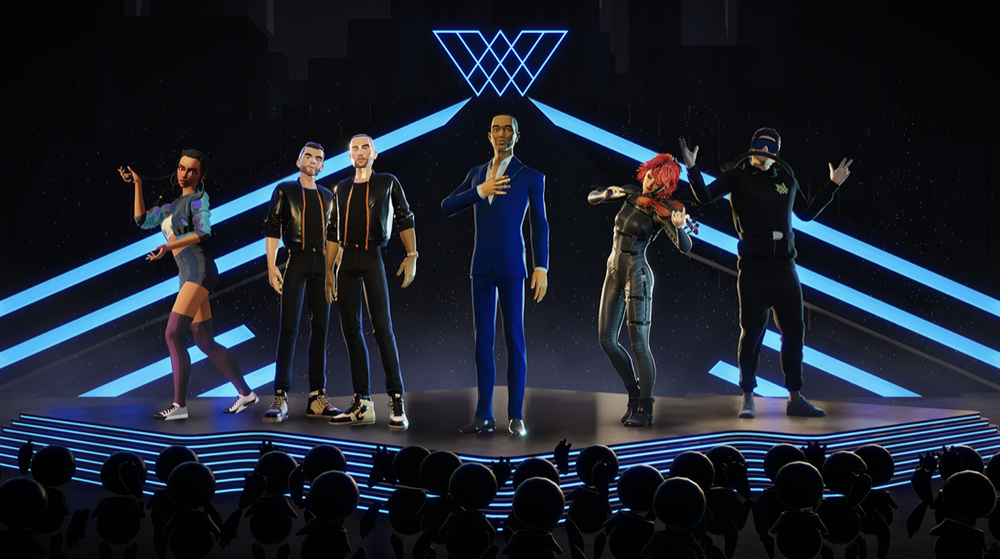Community, Leadership, Experimentation, Diversity, & Education
Pittsburgh Arts, Regional Theatre, New Work, Producing, Copyright, Labor Unions,
New Products, Coping Skills, J-O-Bs...
Theatre industry news, University & School of Drama Announcements, plus occasional course support for
Carnegie Mellon School of Drama Faculty, Staff, Students, and Alumni.
CMU School of Drama
Wednesday, February 09, 2022
Maximizing Concert Experiences Through AR & VR
AMT Lab @ CMU: The application of Virtual and Augmented reality in music has been around for a while. From collaborative creation and interactive music videos to its incorporation in art museums, it seems as if the arts industry is competing with itself to enhance the audience experience. As concerts are a highly user-oriented experience, these technologies have started gaining more traction in the live music space.
Subscribe to:
Post Comments (Atom)

4 comments:
The evolution of technology will forever be interesting to me. Living in modern society, we are constantly coming out with new and updated ways of enchanting the environment we are in through electronics. Incorporating these machines/technology/tools into performance is a fantastic way to explore past the boundaries of what we previously thought was possible for creating art. So, whenever I see new there is technology out, I love to research it. It is also important to have a solid understanding of all the technology one could encounter when working, something that becomes very overwhelming for me when technology is being produced so quickly. I often contemplate how something can get more advanced, and somehow, it also does. You are constantly learning, adapting, and changing in this industry. Which is super exciting! It is something I love, that you always have to push yourself to grow as an artist.
AR and VR being integrated into the world of live concerts is such an interesting concept. It definitely has the potential to elevate the experiences of such events to a new level of intensity and immersiveness. Three years ago, I went to a BTS concert that had one of the members utilize AR during a song to draw interactive virtual hearts in the air; it was the first time I’ve seen that kind of technology in a live space and it was a really fascinating experience. And as seen in the performances mentioned in the article, VR and AR are definitely becoming more popular and effective at adding new technical elements to shows. But I personally think that the feeling of a live performance cannot be exactly replicated through a screen. However, I do think with the rise of VR in the use of live events, there can definitely be significant strides made in terms of accessibility.
I think the possibility of VR and AR concerts, while quite fascinating, will not materialize for at least a decade if not much longer. The point of a concert, at least to me, is to be able to see the artist in the room, feel the pounding of the subwoofer, and be one with a crowd. Both VR and AR remove all of those elements, instead just creating a low-quality movie. Just in terms of the graphics, the technology is not even close to being ready for these types of events. Computers small enough for headsets are not powerful enough right now to run lifelike graphics like a concert would require. On top of graphic requirements, the element of sound is totally missing. No one would go to the lengths required to install massive sound systems that could imitate the feeling of a concert, if they even could. The tech could exist at some point in the future, but we’re just not there yet.
I think they hit the nail on the head here. Yes, VR concerts have their advantages, but they're no replacement for the real thing. However, I think they're missing a piece here about the kind of accessibility that a VR concert could bring about. Number one definitely is general accessibility - if you're either sick or otherwise unable to comfortably attend a concert in real life due to health or other concerns, live VR would be the closest thing to experiencing a live concert of your favorite artists. Another advantage I could see would be the ability to catch events that otherwise wouldn't tour to your city. Something cool that ticket venues could offer would be a season pass of artists, which would both make the investment in buying an expensive VR set more rewarding, and allow VR users to have a unique experience.
But even so, I'm not sure that I would be quick to become a VR consumer. The ethical problems they identify are definitely difficult to work around (unless maybe they put in place a system to block other users). Plus, I personally don't attend concerts frequently anyways, so I'm not in the group that's interested in finding safer alternatives to concerts.
Post a Comment